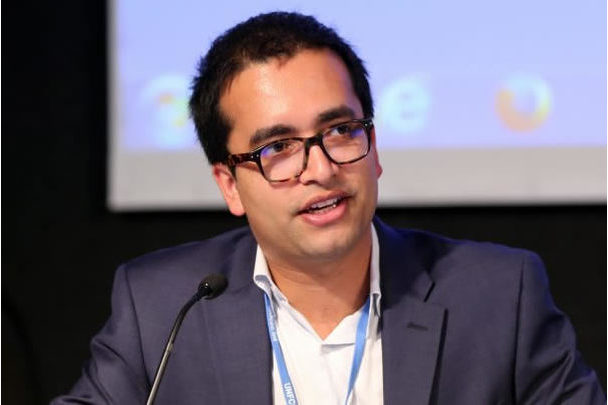Exploring debt profile of climate vulnerable countries

Summary
Climate goals and targets are not often discussed in the context of macroeconomic and fiscal issues.
In this interview, Rishikesh Ram Bhandary, Assistant Director, Global Economic Governance Initiative at the Boston University Global Development Policy Center, speaks on a new policy brief he co-authored that links debt relief to climate crisis. He was interviewed by Jide Akintunde, Managing Editor, Financial Nigeria.
Jide Akintunde (JA): The new policy brief by the Vulnerable Twenty (V20) Group and Boston University Global Development Policy Center is an additional voice in the call for debt relief for debt-stressed developing countries. Why is it important to isolate countries that are vulnerable to climate crises in this advocacy as your study did?
Rishikesh Ram Bhandary (RRB): We wanted to look at climate vulnerable countries because these countries need to make investments to support their climate resilience. Understanding the external debt situation is a key to gaining an accurate picture of the resources at hand and the international support that these countries will require to embark on a climate-resilient development pathway. Furthermore, climate goals and targets are not often discussed in the context of macroeconomic and fiscal issues. So, we wanted to explore the debt profile of climate vulnerable countries.
JA: What is the thinking behind the call in the policy brief for a comprehensive debt restructuring instead of case-by-case bilateral negotiation for debt relief?
RRB: The policy brief identifies the most relevant lenders and creditors for the V20. The most important challenge to address is to get the buy-in of the most important creditors so that meaningful debt relief can be achieved. Creditors are often reluctant to participate if they believe that the government will use the freed-up money to simply pay other creditors. Therefore, we’re more likely to get meaningful action if the most important creditors are involved.
JA: By calling for “debt restructuring” instead of “debt forgiveness”, it is assumed that the debtor countries can repay. But if climate crises reinforce unsustainability of the public debt, is debt restructuring not tantamount to kicking the can down the road given the scenarios that say climate crises are locked in for the next few decades?
RRB: The overall debt relief package will need to incorporate a range of elements including debt forgiveness. Countries need to be back on the path of debt sustainability while also having enough space to make the investments necessary to achieve their climate and development goals, among others. We also need a better understanding of how climate change is contributing to escalating debt levels to devise measures the country can implement on its own as well as with the support of the international community.
JA: Your study identifies private debt and credit provided my multilateral development banks, the Paris Club, and China. Which of these creditors do you think would be more amenable to providing debt relief – whether restructuring or forgiveness?
RRB: One of the trickiest things about debt relief is that all of the creditors need to be on board for there to be meaningful action. When major creditors are missing, even those creditors that want to participate feel inhibited to do so because the debtor government may simply use the freed-up resources to pay other creditors instead. Therefore, it is crucial for all of the major creditors to be closely involved.
JA: Is there a moral hazard to providing cycles of debt relief to some debtor countries with alleged mismanagement of their public finance?
RRB: A debt relief effort that puts climate change and development at the centre will also have to come with key performance indicators so that it is transparent and easy to track the progress of the country in meeting its goals. Commitment to such a monitoring framework is likely to encourage creditors to participate in a debt workout.
JA: Nigeria is not one of the 55 member countries of the V20 Group despite its high debt burden and susceptibility to climate crisis. What are the criteria for joining the Group and is its membership subject to future expansion?
RRB: I would recommend Nigeria getting in touch with the V20 Secretariat on membership details.
JA: What is the breadth of the work of the Global Economic Governance Initiative at the Boston University Global Development Policy Center?
RRB: GEGI works across international trade and investment, financial stability, and development finance institutions. Our mission is to advance policy-oriented research to align global economic governance with development and climate ambition to deliver green and inclusive prosperity.
Recent Interviews
Latest Blogs
- The Museum of West African Art saga
- The complexity and complication of Nigeria’s insecurity
- Between bold is wise and wise is bold
- Prospects of port community system in Nigeria’s maritime sector
- Constitutionalism must anchor discipline in Nigerian Armed Forces
Latest News
- Africa needs €240 billion in factoring volumes for SME-led transformation
- ChatGPT is now the most-downloaded app – report
- Global trade to hit record $35 trillion despite slowing momentum
- CBN licences 82 bureaux de change under revised guidelines
- Green economy to surpass $7 trillion in annual value by 2030 – WEF











